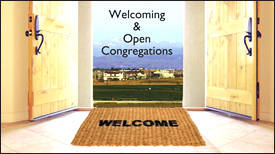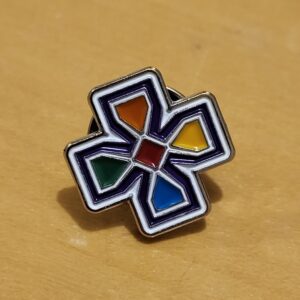“Listening process vital to bring gay, lesbian clergy in from margins
The Church of Ireland has long held within its ranks gay and lesbian clergy. It is time to welcome them, and gay and lesbian laity as well, writes Mervyn Kingston.
AWARENESS OF the existence of gay and lesbian clergy is high among our Anglican neighbours in the Church of England and the North American Anglican provinces. By contrast, gay clergy in the Church of Ireland are relatively invisible. Where homosexuality is concerned, the general Church of Ireland policy seems to be “don’t ask, don’t tell”.
While this allows some space for gay and lesbian clergy, it falls far short of the acceptance of gay and lesbian clergy achieved in other provinces of the Anglican Communion. It also perpetuates invisibility and does not facilitate the listening process. In a recent interview the Archbishop of Armagh admitted: “We haven’t adequately listened to the stories of gay people, or adequately lived up to our obligations to pastoral care.”
If gay and lesbian clergy are too afraid to come forward because of homophobia or a concern about being disciplined, how are they to be listened to? If the bishops and senior officers of the Church of Ireland are inhibited or lack the knowledge or willingness to engage with gay and lesbian clergy, how can a full listening process take place?
Dioceses of the Episcopal Church in North America and of the Church of England have for decades accepted openly gay clergy, including partnered gay clergy. This is making it increasingly difficult for the House of Bishops of the Church of Ireland not to address the issue. Furthermore, under the UK Civil Partnership Act 2005, clergy of the Church of Ireland are legally entitled to enter into same-sex civil partnerships. This can be expected to occur in the Republic too when it too introduces civil partnership. Already the Church of Ireland Pensions Board has confirmed that it will treat civil partners the same as spouses.
In a study published in the current issue of the Church of Ireland theological journal Search I write about gay clergy in Church of Ireland parishes. At least 65 gay clergy can be counted as having served in the Church of Ireland since the second World War. They each served in four parishes, on average. By drawing attention to the not insignificant number of gay clergy in the Church of Ireland, and by showing how they have served and are serving in all parts of the church, it becomes clear the issue of gay and lesbian clergy is not an abstract one but is part of the reality of parish life in Ireland.
Most gay clergy are highly respected, and their ministry is acceptable in each place, but of course their sexuality is not known. Gay and lesbian clergy or lay people have not been adequately involved to date in the listening process. What is needed is a listening exercise at rural deanery and diocesan level, where clergy and lay church members get to meet in person some of the gay and lesbian Christians in our churches.
To assist the listening process in the Church of Ireland a new group, Changing Attitude Ireland, was formed last year. It is a network of clergy and lay people, gay and straight, committed to working for lesbian, gay, bisexual and transgendered affirmation in the church.
This includes working for change in the official teaching and attitude of the church and for the provision of services of blessing for same-sex couples in church using an authorised liturgy. Gay clergy are and have been part of the Church of Ireland. If we are to be a truly open and inclusive church, then we need to find ways to welcome gay and lesbian lay people and clergy, who often feel marginalised and isolated.
The challenge is how to release them from invisibility, to value them and draw on their particular experience as part of a meaningful listening process.
Rev Mervyn Kingston is a retired Church of Ireland clergyman, and co-founder and secretary of Changing Attitude Ireland. www.changingattitudeireland.com


